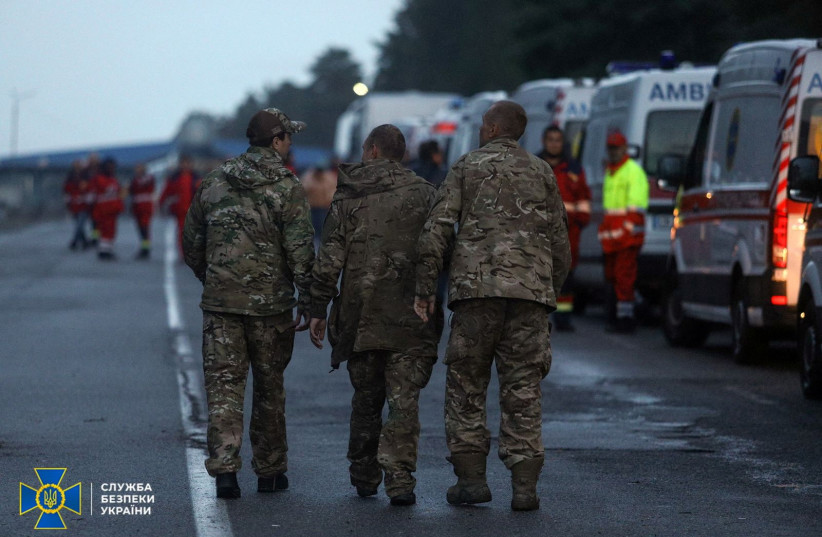A month has passed since Vjekoslav Prebeg was freed from Russian captivity in a prisoner swap between Ukraine and Russia, and the 40-year-old Croatian still looks shaken as he recounts his experiences.
A soldier by profession, Prebeg said he went to Kyiv in December 2019 because he wanted to help Ukraine in its eastern war against pro-Russian separatists, and later signed up to join the Ukrainian army in May 2020.
His battalion was in the first line of attack when the Russian invasion - which Moscow describes as a special military operation - began on Feb. 24.
Outnumbered and outgunned, they were forced to withdraw. One month later, during fighting near the southern city of Mariupol, he said he was captured by Russian soldiers, who took Prebeg to their unit headquarters in a deserted army barracks.
Prebeg's experience in Russian prison

"When I arrived there they took me out of the car; my head was covered with some kind of bag. I was immediately hit in the head, my nose was broken and brutal questioning began," he told Reuters in his home city of Zagreb.
He said the violent treatment there ended when a unit commander intervened. Pregeb said he was allowed to shower and given food and something hot to drink.
He said he then spent the night in a garage with other prisoners of war, bound and blindfolded, before being transferred to the eastern Russian-controlled region of Donetsk.
"They (the guards) were constantly cocking their weapons and were putting a knife on various parts of my body, legs, neck, stomach, especially to me because I was a foreigner and they were saying all the time 'you are a mercenary'," he said.
"They were saying 'let's throw him away and kill him and we will say he tried to escape, what do we need him for'. At one point they beat me up so hard that I lost consciousness."
United Nations and Russia's prisoners of war
The United Nations said in September that Russia was not allowing access to prisoners of war and that it had evidence that some had been subject to torture and ill-treatment which could amount to war crimes.
Russia denies torture or other forms of maltreatment of POWs. The Russian Defence Ministry did not immediately respond to a request for comment on Prebeg's allegations of mistreatment by Russian soldiers.
Having been told he would have to spend more than three years in prison, Prebeg was released after five months in a prisoner swap along with nearly 300 others, including several other foreigners.
Prebeg said he would not be returning to Ukraine.
"I am 40 years old and for me, it was a very difficult physical experience and I do not have the strength anymore to repeat something like this."
